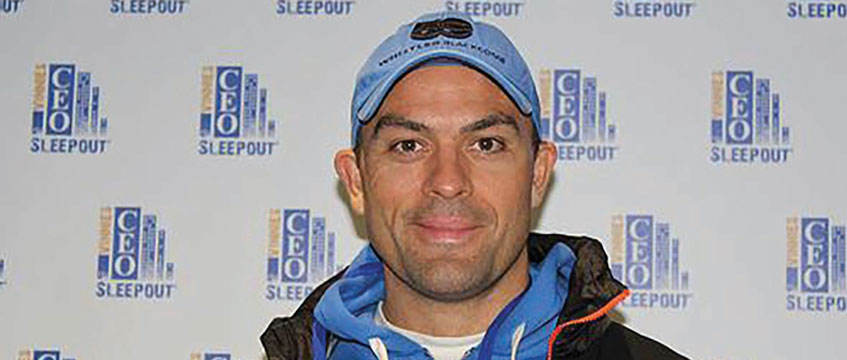Leisure operator Soul Padel has set out plans to open five centres in the North West of England, in what its co-founder calls a “race for space” with rivals also seeking expansion in the UK.
The operator, which aims to launch its first venue this year, has appointed consultancy Lamb & Swift to search for sites. Its hit list includes Lancaster, Preston, Wigan, Bolton, Manchester, Warrington and Chester.
It is seeking spaces of between 20,000 sq ft and 50,000 sq ft, with parking for at least 40 cars. Industrial spaces, retail parks, leisure centres and large halls or buildings will be considered, as well as land suitable for development.
Ideal venues would have a minimum height of 7.5m from finished floor level. Layouts would preferably have space for five courts. Small amenity areas are also required for pro shop, café and changing facilities.
The operator hopes to partner with schools, sports clubs, council-run facilities and educational institutions to bring padel to communities.
Soul searching
Soul Padel, which launched in November last year, joins a host of operators across the UK that are on the hunt for centres as demand for the sport rises.
But co-founder Mark Hewlett, whose previous roles include senior real estate positions at discount retailers Aldi and Lidl, told EG that landlords have yet to harness the sport’s potential for growth.
Padel is a €2bn (£1.7bn) industry, according to figures from Playtomic and Monitor Deloitte. Celebrities backing the racket sport, which is described as a cross between tennis and squash and played in doubles, include Lionel Messi and Andy Murray. In Spain, for example, padel is the second highest participation sport after football, with more than 15,000 courts in operation.
The UK padel scene spans 400 courts, a figure that has quadrupled in two years, according to Hewlett. But with 140,000 active players, there is still a scarcity in supply, creating what Soul Padel calls a “land grab” race to develop new centres.
Potential for a game-changer
Depending on what data you use, Hewlett says there is potential for “anywhere between 11,000 and 30,000 courts” in the UK. Some areas of the country are barren for padel enthusiasts – in the North West, there is not a single indoor court.
“At the moment there’s a little bit of hesitancy because the sport isn’t very well known,” said Hewlett. “You can imagine developers and landlords with large estates are quite reluctant to change use to leisure from light industrial or manufacturing, simply because they perceive the investment value could diminish.
“But I think the proof is in the pudding. When you look across Europe, a lot of padel centres have been retrofitted into industrial units, large former sport centres and many other different innovative uses of space.
“There’s a really big opportunity for that to happen here in the UK. A number of our competitors have already entered the market, have taken large industrial sheds and converted them to indoor courts. We believe there’s a slightly better option, which is either purpose-built or more bespoke designs, to create welcoming and enjoyable spaces.”
Courting industrial landlords
Soul Padel is reviewing former and existing industrial properties for its expansion plans, as well as new-build opportunities.
Hewlett, who was also chief operating officer and a member of the Test and Trace executive committee at the Department of Health and Social Care during the pandemic, believes some landlords are unaware of the opportunities, with potential locations remaining empty. He also posits that some owners in the know are playing hardball on leasing terms.
“The space race is around whether there are enough empty industrial units presently, or if landlords are prepared to consider padel as an opportunity,” said Hewlett. “The sport can pay competitive rates to occupy, so we believe it’s a viable alternative.
“When you think about the added benefits from a community point of view, there’s lots of local authorities that we’re talking to that really want to re-energise indoor sporting facilities and open up access to people who have dropped sport during the pandemic. Padel is an easy way to get people back into playing regularly and socialising again.”
The game is easy to pick up, Hewlett said, with a low barrier to entry in terms of skills and experience, and is affordable in terms of equipment.
“In the past, when there’s a really viable and vibrant opportunity to bring a new sport to the UK public, they don’t just embrace it as a flash in the pan, they embrace it for quite a while,” said Hewlett, pointing to competitive socialising activities such as darts, golf and bowling. He urged landlords to “remain open-minded”.
“From our research, and from what we’ve seen in Europe, brilliant centres to play padel in are going to be really successful and profitable opportunities, and that can work for both landlords and the operators.”
Hewlett added: “I’m more than prepared to take some landlords to Spain, Portugal or Italy to show them what can be done with space and just how income generative these centres can be.”
To send feedback, e-mail pui-guan.man@eg.co.uk or tweet @PuiGuanM or @EGPropertyNews











